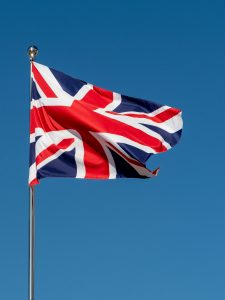The UK continues to refine its customs and trade operations with significant changes underway. To help businesses stay informed and better understand these changes, our colleague Chris Porter at Kukla UK spoke with David Richardson, the Regulatory and Commercial Affairs Director at the Wine and Spirit Trade Association (WSTA) and his colleagues – Sam Honey, Freddie Joosten and Franco Gentile.
They provided valuable insights into upcoming developments, including tariffs, international trade, collection and packaging reforms, Extended Producer Responsibility, which began this year, and the forthcoming changes related to the Windsor Framework. This complex interview covers all these topics and more.
Chris: What really happened in the March 2025 Spring Statement, and was it the major budget many expected?
WSTA: Widely mischaracterised in the press as a major budget with the possibility of tax changes, the Spring Statement saw minor Government interventions, primarily through cuts to spending and changes to the welfare state, to restore their fiscal headroom – projected budget surplus by 2030. There were also significant reforms to the civil service, and a £150 million fund for civil service exit pay settlements funding, aimed at cutting jobs and driving efficiency in the administrative operation of the Government.
The Government had intended to simply present a fiscal and economic forecast with no policy action, but their hand was forced by disruptive global trading conditions, and a downgrade in the UK’s GDP forecast that saw the Chancellor’s fiscal ‘breathing room’ wiped out.

How is the UK Government aiming to increase tax revenues without raising tax rates?
Aside from general spending cuts, the Government also focused on the need to improve HMRC services to increase tax collection rates. Four consultations on tax avoidance were announced, funding for 1,100 new debt management and compliance staff was pledged, and the restarting of HMRC’s ‘direct recovery’ of tax debts was confirmed. It was also announced that Making Tax Digital (MTD) would be expanded to sole traders with an income of £20,000+, from April 2028, and that late payment penalties under MTD will increase to 3% of the tax outstanding where tax is overdue by 15 days, plus 3% where tax is overdue by 30 days, plus 10% per annum where tax is overdue by 31 days or more.
“UK GDP is expected to grow by 50% less in 2025 than originally thought.”
What does the UK’s latest economic forecast say about growth and revenue sources?
A comprehensive fiscal and economic forecast was published by the economic watchdog, the Office for Budget Responsibility. The forecast stated that UK GDP is now expected to grow by 50% less in 2025 than originally thought. The OBR’s forecast estimated that the Government’s collective reforms to planning will add several billion pounds to GDP by 2029/30, while the Government also announced a series of capital investments in defence/security and infrastructure projects. Capital expenditure falls outside of the Government’s day-to-day spending (and fiscal rules) and aims to drive economic growth via investment in longer-term capabilities and innovations. While there is more flexibility here for the Government to invest, without risking their headroom, the exact impact of such investment on the economy is difficult to estimate.
The OBR forecast included projections for annual revenue from Extended Producer Responsibility (EPR) and alcohol duty until 2029/30. These are simply revenue estimates and have no practical impact on either policy. In accounting for behavioural changes in the forecasting process, the Office for Budget Responsibility (OBR) did however publish an admission from DEFRA that EPR ‘ is unlikely to have a material impact on rates of recycling or packaging waste volumes in the next five years.’
What key events should logistics and business stakeholders watch for following the Spring Statement?
On 11th June, the Government’s spending review concludes and sees the budgets for day-to-day spending by Governments set until 2029/30. Following this, Government departments and agencies (Including HMRC) are likely to confirm the fate of a number of programmes and policy initiatives, such as the Single Trade Window. This Autumn (exact date TBC), the Government will hold a full, conventional budget where taxation changes will be on the table (and increases may well be unavoidable).
“The exclusion for business waste is difficult to navigate and many bottles will end up subject to EPR fees.”
How is the Extended Producer Responsibility (EPR) policy reshaping packaging waste management?
Extended Producer Responsibility started this year. The purpose is to place the cost of recycling household waste on the ‘producer’. There are many difficulties with this policy including identifying the obligated party, particularly for imports. The scheme is further complicated as the exclusion for business waste is difficult to navigate and many bottles will end up subject to EPR fees, despite hospitality paying for their own private waste disposal. A consultation to review the non-household exemption is expected later this year.

What financial impact should businesses expect from EPR fees?
The cost of EPR is significant, with glass fees estimated at £240 per tonne. Final fees will not be known until at least July, but accounting requires a provision for the expected waste disposal fees to be recorded as at 1 April 2025. EPR will be invoiced in October. The total cost of EPR is approximately £1.5bn and is set to increase to £1.8bn by 2029.
What’s happening with Deposit Return Schemes (DRS) across the UK nations?
Deposit Return Schemes are a devolved competency, meaning each nation’s scheme is separate. DRS requires a deposit to be applied to each drink container sale, which is redeemed when the bottle or can is returned to a collection point, thus reducing littering and improving recycling. There is a joint agreement to align schemes, but the Welsh Government has withdrawn and will design their own DRS. This could involve separate materials in scope, such as including glass, unique labelling for Wales, and a delay to its launch. The rest of the UK plans to launch DRS in October 2027; however, we believe there is little time to design the scheme, purchase and build the required infrastructure, and a delay may be necessary. Materials in the scope of DRS do not attract EPR fees, and this has distorted the market, disincentivising glass use.
Why are PRNs and PERNs still a burden for obligated producers?
Packaging Recovery Notes (PRNs) are evidence for ‘producers’ to contribute to the cost of waste recovery and reprocessing. This outdated system has been subject to numerous investigations, finding that the scheme lacks transparency and could be subject to fraud. Plans to incorporate PRNs (and the export version PERN) into EPR have been delayed, meaning obligated producers will have to continue purchasing these certificates. Prices are volatile and have increased substantially in recent years, to some £600m in 2023.
“The UK Government will continue to negotiate on an ‘economic agreement’ with the US.”
What impact will the new US trade strategy have on UK exports? (NB this is subject to rapid change)
On 2 April, the US published its trade reciprocity strategy, which aims to ‘equalise’ tariff schedules among US trading partners. This included a 10% universal tariff and reciprocal tariffs (20–40%) on 60+ countries. The UK was targeted with a blanket universal tariff of 10% with effect from 5 April, meanwhile, the EU initially faced reciprocal tariffs of 20% from 9 April.
However, due to US stock market turmoil, the White House reduced its reciprocal tariff strategy to a blanket 10% tariff on all trading partners. Although China faces import tariffs of around 140%, steel & aluminium products and derivatives face import tariffs of 25%.
How is the UK responding to new US tariffs?
The UK Government will not respond with retaliatory tariffs but will continue to negotiate on an ‘economic agreement’ with the US. It has instead published a call for input on the consequences of US tariffs and help on policy design for any trade retaliatory tool. The consultation, and anything flowing from it, will be suspended if the US and UK agree to an ‘Economic Agreement’.
“Duty stamps will be abolished from 1 May, although they remain mandatory for eligible goods released before that date.”
Why have trade simplification projects stalled, and what does this mean for logistics?
The Modernising Authorisations programme has been cancelled and the Single Trade Window “paused”. This is very disappointing and means that the simplified and digitised processes will not be delivered. HMRC have said they will try to learn some lessons and hope to be able to improve some processes for us outside those programmes.
What’s changing at the UK border and for excise goods?
Safety & Security declarations for imports from the EU are now in force, with no reported problems. WOWGR has been abolished, so owners of non-wine duty suspended goods no longer need an HMRC certification, although they will still be subject to due diligence by warehousekeepers.
Duty stamps will be abolished from 1 May, although they remain mandatory for eligible goods released before that date.
“All businesses trading with NI should check their Trader Goods Profile.”
As a final thought, how should companies adjust their operations for the upcoming Windsor Framework changes?
Changes to the Windsor Framework will come into effect on 1 May. The main unavoidable change will be for B2B parcels. B2C parcels will be largely unaffected, and traders need to talk to their courier providers to ensure that they are using a registered courier and understand their data provision requirements. All businesses trading with NI should check their Trader Goods Profile.
Thank you, WSTA team. As always, your engagement with Kukla News is invaluable.

